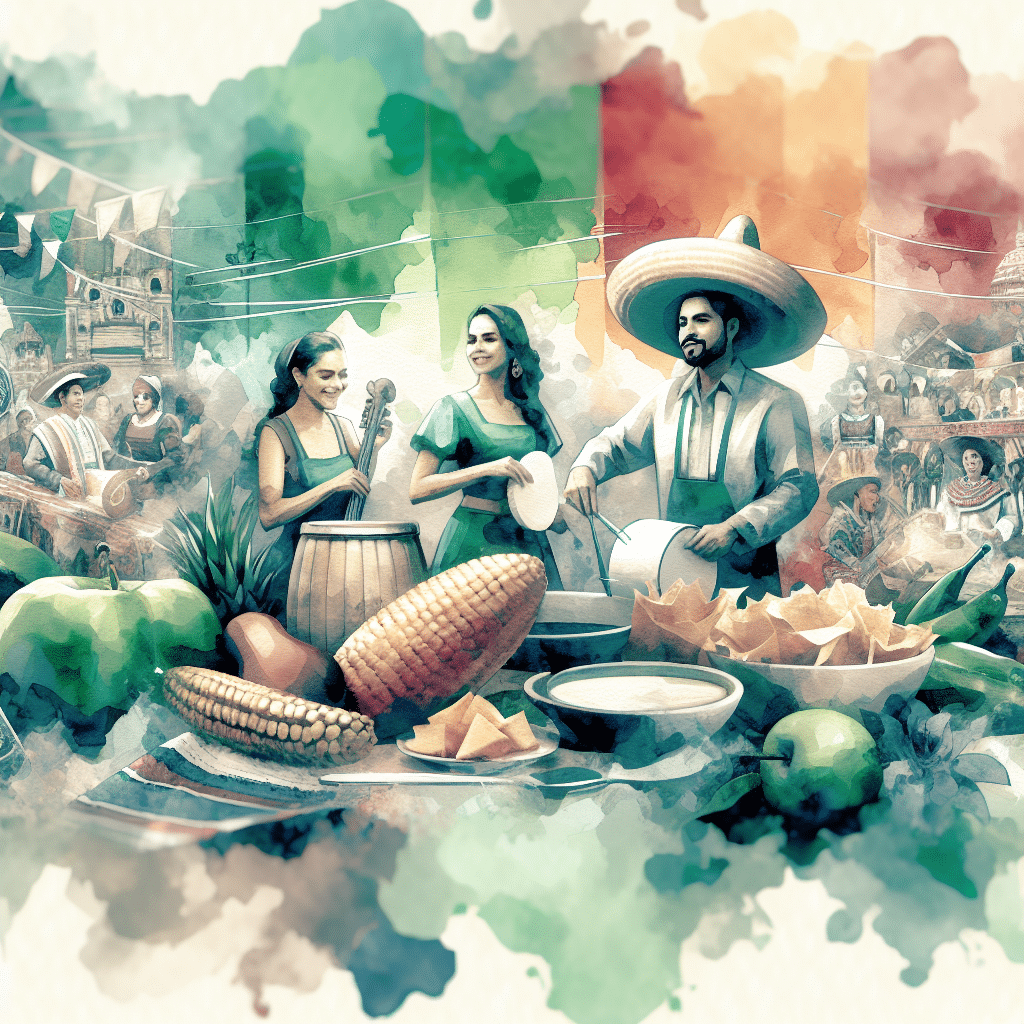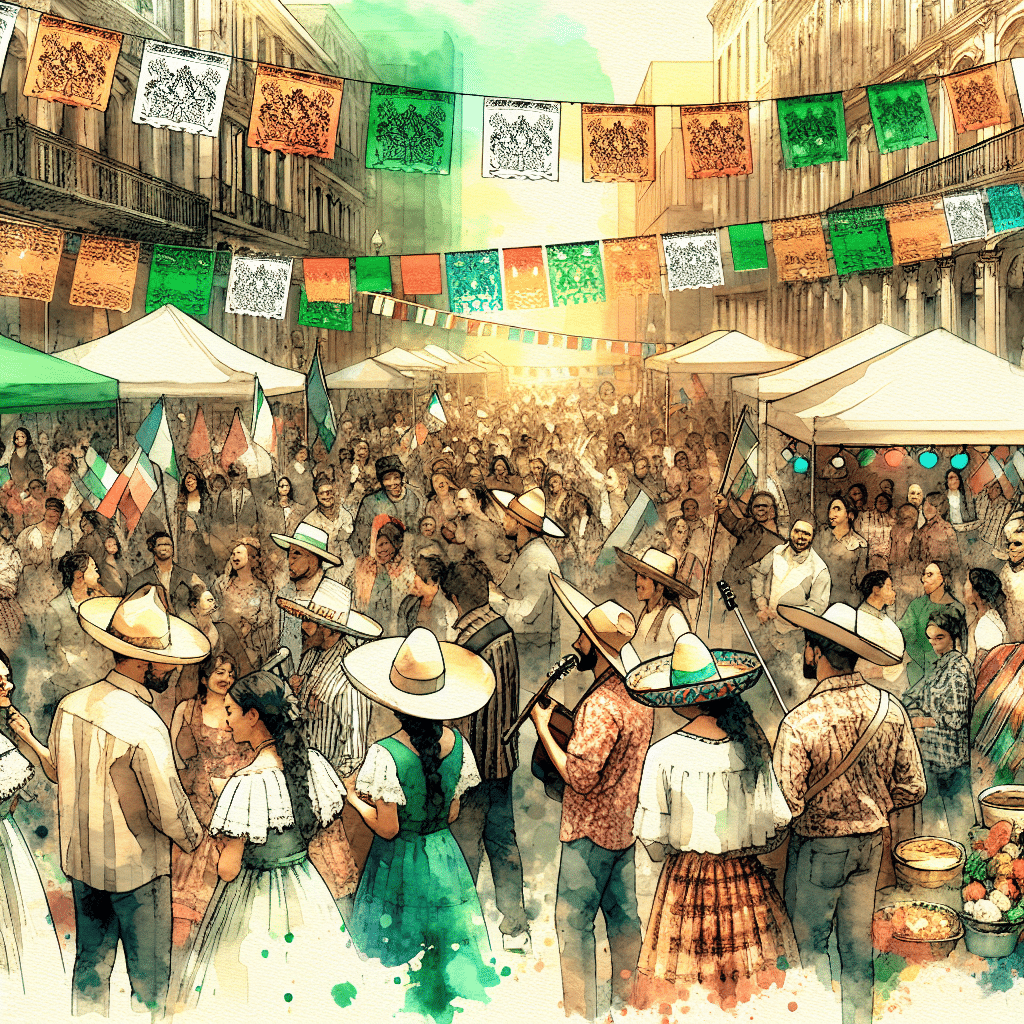
Hispanic Heritage Month: A Fiesta of Tradition, Music, and Food
Hispanic Heritage Month Overview
History and Significance
National Hispanic Heritage Month runs from September 15 to October 15 each year. This month-long celebration honors the histories, cultures, and contributions of American citizens whose ancestors came from Spain, Mexico, the Caribbean, and Central and South America. It all started back in 1968 when President Lyndon B. Johnson kicked off the first Hispanic Heritage Week. California Congressman George E. Brown pushed for this during the civil rights movement to highlight the Hispanic community’s role in American history.
September 15 is a big deal because it marks the independence anniversaries of five Latin American countries: Costa Rica, El Salvador, Guatemala, Honduras, and Nicaragua. Plus, Mexico and Chile celebrate their independence days on September 16 and 18, respectively. The celebration got a major upgrade to a full month in 1988, thanks to President Ronald Reagan.
Evolution of the Celebration
What started as a week-long fiesta has grown into a grand 30-day bash. President Lyndon B. Johnson first proclaimed Hispanic Heritage Week on September 17, 1968, with September 15 and 16 as the kickoff dates. The week aimed to recognize the contributions and influence of Hispanic Americans on the country’s history, culture, and achievements.
By 1988, the importance of recognizing Hispanic heritage had grown so much that it was extended to a month-long celebration. President George H.W. Bush officially declared the expansion on September 14, 1989. Today, Hispanic Heritage Month is a vibrant celebration that includes various cultural events, educational programs, and community activities.
| Year | Event | Significance |
|---|---|---|
| 1968 | Hispanic Heritage Week proclaimed by President Lyndon B. Johnson | Recognized contributions of Hispanic Americans |
| 1988 | Expansion to Hispanic Heritage Month by President Ronald Reagan | Extended to a month-long celebration |
| 1989 | Official declaration by President George H.W. Bush | Formalized the 30-day observation |
Throughout the month, there are tons of activities that highlight the rich traditions and customs of Latino culture. From lively parades and traditional dances to educational seminars, the celebrations reflect the diversity and vibrancy of Hispanic heritage. Check out our section on community celebrations to learn more about events near you.
Hispanic Heritage Month is more than just a celebration; it’s a time to honor and recognize the invaluable contributions of the Hispanic community to the fabric of American society. Whether you’re attending a film festival or exploring Hispanic culture and traditions, this is a period to embrace and celebrate the dual cultural identity that enriches our nation.
Key Dates and Celebrations
Hispanic Heritage Month is a lively time packed with important dates and celebrations. From September 15 to October 15, it’s a month-long party of history, culture, and pride.
Independence Anniversaries
The fun kicks off on September 15, marking the independence anniversaries of several Latin American countries. This date isn’t random; it’s like the universe knew we needed a reason to celebrate for a whole month.
| Country | Independence Day |
|---|---|
| Costa Rica | September 15 |
| El Salvador | September 15 |
| Guatemala | September 15 |
| Honduras | September 15 |
| Nicaragua | September 15 |
| Mexico | September 16 |
| Chile | September 18 |
| Belize | September 21 |
These dates are special as they mark the day these nations broke free from colonial rule and embraced independence. For more on the broader impact of these celebrations, visit latino community celebrations.
Columbus Day and Día de la Raza
Another big date within Hispanic Heritage Month is October 12, known as Columbus Day in the U.S. and Día de la Raza in many Latin American countries. While Columbus Day marks Christopher Columbus’s arrival in the Americas, Día de la Raza celebrates the mix of indigenous and European cultures.
Día de la Raza means “Day of the Race,” and it’s a time to honor the rich blend of cultures that make up Latin America. Think of it as a cultural mashup, where indigenous traditions meet European influences, creating a vibrant, unique culture that’s worth celebrating.
For more on the significance of Día de la Raza and other cultural festivities, check out our section on hispanic culture and traditions.
Hispanic Heritage Month is a time to celebrate the rich history, culture, and contributions of Hispanic and Latino Americans. With key dates like the independence anniversaries and Día de la Raza, this month-long celebration is packed with events that highlight the vibrant and diverse heritage of the Latino community. For more on the various events and activities during this month, visit hispanic heritage month activities.
Cultural Contributions
Impact on American Identity
Hispanic heritage is like the secret sauce in the recipe of American identity, adding a burst of flavor with its traditions, stories, and, let’s be real, some epic dance moves. From eye-catching art and soul-stirring literature to the infectious beats of Hispanic music, the influence is everywhere. Hispanic creativity has not just enriched American culture; it’s helped make America a place where everyone can feel at home.
And who could forget the food? Tacos, anyone? Hispanic cuisine isn’t just a guest at the American table; it’s a beloved staple. But the contributions go way beyond the kitchen. Hispanic innovators have left their mark in fields like medicine, music, and even inventions (UMD Alumni Association).
| Field | Notable Contribution |
|---|---|
| Music | Salsa, Reggaeton, and Latin Pop |
| Cuisine | Tacos, Empanadas, and Tamales |
| Medicine | Hispanic doctors and researchers |
| Literature | Works by Gabriel García Márquez and Isabel Allende |
Curious about how these contributions have shaped American culture? Check out our article on Hispanic culture and traditions.
Contributions to Modern Culture
Modern culture owes a big thank you to Hispanic heritage, from the catchy beats of Latin music to the binge-worthy hits on Netflix. Hispanic Heritage Month is the perfect time to celebrate these contributions and the vibrant traditions that make up the Latino community (UMD Alumni Association).
Hispanic culture is a powerhouse in pop culture too. Think about the rise of Latinx representation in Hollywood, with stars like Lin-Manuel Miranda and Salma Hayek making headlines. And music? The charts are often dominated by Latin hits from artists like Bad Bunny and Shakira.
| Area | Notable Figures |
|---|---|
| Film | Lin-Manuel Miranda, Salma Hayek |
| Music | Bad Bunny, Shakira |
| Literature | Gabriel García Márquez, Isabel Allende |
| Activism | Cesar Chavez |
Hispanic Heritage Month is a global celebration that brings together various cultures to honor the unique qualities of Hispanic peoples (UMD Alumni Association). Want to join the festivities? Check out our guide to Latino community celebrations.
The cultural contributions of Hispanic Americans have shaped much of the modern world. Their traditions, stories, and innovations have made the American experience richer and more inclusive (Cisneros Hispanic Leadership Institute). For a closer look at the impact of these contributions, explore our list of famous Hispanic Americans.
So, next time you savor a taco, watch a movie featuring a Latinx star, or groove to a reggaeton beat, remember the rich cultural heritage behind these experiences. Happy Hispanic Heritage Month!
Notable Hispanic Americans
Celebrate Hispanic Heritage Month by diving into the lives of some truly inspiring figures. These notable Hispanic Americans have left an indelible mark on history, culture, and pop culture. Let’s get to know them a bit better.
Rita Moreno and EGOT Achievement
Rita Moreno, born in Humacao, Puerto Rico, is a living legend. She became the first Hispanic American woman to win an Academy Award for Best Supporting Actress in 1961 for her role in West Side Story. But she didn’t stop there. She went on to achieve the coveted EGOT status by winning an Emmy, Grammy, Oscar, and Tony Award by 1977. Just when you thought she couldn’t outdo herself, she added a Peabody Award to her collection in 2019.
Rita’s accomplishments serve as a beacon for aspiring artists, illuminating the path to success with her incredible talent and resilience.
Cesar Chavez and Labor Activism
Cesar Chavez, born in Arizona to a Mexican American family, was a titan in the world of labor rights. Co-founding the National Farm Workers Association, which later became the United Farm Workers labor union, Cesar became a primary figure for Latin American civil rights. His relentless fight for farm workers’ rights earned him the Presidential Medal of Freedom posthumously in 1993 (Biography).
Chavez’s legacy continues to inspire activists and laborers, reminding us that the power of collective action can bring about significant change.
Selena Quintanilla’s Musical Legacy
Selena Quintanilla, often simply known as Selena, is a name that still resonates deeply within the Latino community. A Mexican American singer, she won a Grammy Award for Best Mexican American Album in 1994, making her the first Tejana to win in this category. Selena’s life was tragically cut short in 1995 when she was shot by one of her employees.
Despite her untimely death, Selena’s influence on music and culture remains powerful. Her songs continue to be celebrated, and her legacy is a testament to her talent and the impact she made in such a short time.
| Name | Notable Achievement | Year |
|---|---|---|
| Rita Moreno | First Hispanic American woman to win an Oscar | 1961 |
| Cesar Chavez | Co-founded National Farm Workers Association | 1962 |
| Selena Quintanilla | First Tejana to win a Grammy | 1994 |
For more insights on other influential figures, check out our article on famous hispanic americans.
Celebrate these icons during Hispanic Heritage Month and explore more about their contributions to hispanic culture and traditions. Whether through movies, activism, or music, their legacies continue to inspire.
Hispanic Heritage Month Events
Hispanic Heritage Month, running from Sept. 15 to Oct. 15, is a lively celebration that shines a spotlight on the contributions, traditions, and impactful ways Hispanic people have shaped the United States (Boys & Girls Clubs of America). Let’s jump into the exciting events that make this month-long party a must-attend.
Latinx Heritage Celebration
At George Washington University, Hispanic Heritage Month is celebrated as the Latinx Heritage Celebration. This isn’t just another campus event; it’s a cultural bonanza aimed at educating and enriching the community on Latinx heritage. The celebration includes a variety of programs, presentations, and events throughout September and October (Cisneros Hispanic Leadership Institute).
Key activities include:
- Cultural Workshops: Learn about traditional Latino dances like salsa and bachata.
- Food Fiestas: Savor the rich flavors of Hispanic cuisine.
- Guest Speakers: Hear from famous Hispanic Americans who have made a big impact.
- Art Exhibits: Check out works by Latinx artists.
| Event Type | Description |
|---|---|
| Cultural Workshops | Dance lessons, art classes, cooking demos |
| Food Fiestas | Tastings of traditional Hispanic dishes |
| Guest Speakers | Talks by notable Latinx figures |
| Art Exhibits | Showcasing Latinx art and crafts |
Educational Programs and Events
Educational programs during Hispanic Heritage Month are key to building awareness and appreciation of Hispanic culture. Universities like the University of Maryland focus on learning from each other and recognizing diversity as a strength.
Popular educational activities include:
- Local and Virtual Tours: Explore Hispanic landmarks and museums.
- Book Clubs: Dive into works by Hispanic and Latino authors.
- Movie Screenings: Watch films that explore Hispanic culture and traditions.
| Activity Type | Description |
|---|---|
| Local and Virtual Tours | Visits to Hispanic landmarks and virtual museum tours |
| Book Clubs | Discussions on books by Hispanic authors |
| Movie Screenings | Films exploring Hispanic culture |
These programs not only provide educational value but also foster a sense of community and inclusivity. Whether you’re attending a Latino film festival or joining a book club, these events offer a unique chance to celebrate and learn about Hispanic heritage.
For more on Hispanic Heritage Month activities and Latino community celebrations, check out our other sections.
Hispanic Heritage Month Initiatives
Latinx Student Scholarship Fund
The Latinx Student Scholarship Fund is a prime example of how University of Maryland (UMD) alumni are putting their money where their heart is. This fund offers scholarships to students committed to the Latinx community or those pursuing a U.S. Latina/o Studies major or minor (UMD Alumni Association). Created by UMD alumni, the scholarship aims to make education more accessible for Latino students.
| Scholarship Details | Amount |
|---|---|
| Commitment to Latinx Community | Varies |
| U.S. Latina/o Studies Major/Minor | Varies |
For students dreaming of higher education but facing financial challenges, this fund can be a lifeline. It’s not just about the money; it’s about building a community and supporting future leaders within the Latino community. Check out more initiatives like this in our section on Hispanic Heritage Month activities.
Embracing Diversity and Inclusivity
At the University of Maryland, inclusivity and diversity aren’t just buzzwords—they’re core values (UMD Alumni Association). By recognizing and embracing differences, the university aims to provide a unique perspective on life. This philosophy extends beyond the campus, influencing how students, faculty, and even alumni engage with the world.
To embrace diversity, UMD encourages:
- Educational Programs: Offering courses and seminars that highlight the rich tapestry of Latino heritage.
- Cultural Events: Hosting events such as Latino cultural events and Latino film festivals that celebrate Latino traditions and customs.
- Inclusive Policies: Implementing policies that promote equal opportunities for all students, regardless of their background.
These initiatives are not just about celebrating Hispanic Heritage Month; they’re about creating a lasting impact. By learning from each other and acknowledging diversity as a strength, UMD is setting an example for institutions across the country.
For more on how these values are celebrated, explore our articles on Latino Heritage Month and Hispanic culture and traditions.




